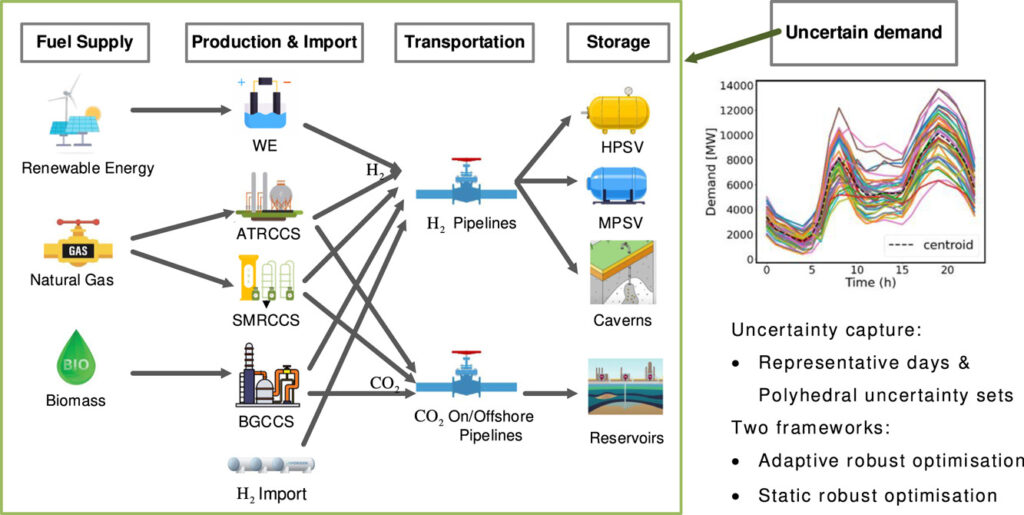An insightful study titled “Data-Driven Robust Optimisation of Hydrogen Infrastructure Planning Under Demand Uncertainty Using a Hybrid Decomposition Method” by Xu Zhou, Margarita E. Efthymiadou, Lazaros G. Papageorgiou, and Vassilis M. Charitopoulos, was published. This research brings new methodologies for optimizing hydrogen infrastructure in the face of fluctuating demand, paving the way for more reliable hydrogen supply chains.
As the global community accelerates its efforts towards achieving “Net-zero” emissions, hydrogen is increasingly seen as a pivotal alternative to traditional carbon-based fuels. Amidst the growing emphasis on heat decarbonization, the study provides critical insights into the planning and expansion of hydrogen infrastructure in Great Britain.
The research highlights that demand uncertainty presents significant challenges in ensuring cost-effective and secure hydrogen supply chains. To tackle these challenges, the authors propose a data-driven robust optimization framework. This framework leverages polyhedral uncertainty sets to create uncertainty-aware representative days, which inform yearly investment and hourly operational decisions.
An innovative hybrid decomposition algorithm, grounded in a two-step hierarchical procedure and the column-and-constraint generation (CCG) method, is designed to handle the problem’s large-scale computational demands efficiently. The process significantly reduces computational complexity while maintaining robust and adaptive operational decisions.
These findings have profound implications for policymakers and infrastructure planners. By adopting the proposed robust optimization models, decision-makers can better manage demand uncertainties, leading to a more resilient hydrogen infrastructure. This is especially critical for effective long-term planning and investment, ensuring the infrastructure can adapt to varying demand conditions without incurring unnecessary costs.
As the hydrogen market grows, the need for robust planning methodologies becomes more pressing. The research suggests that incorporating adaptive robust optimization can mitigate cost increases attributable to uncertainty, making hydrogen more economically viable. This, in turn, supports the broader market by providing a more stable and predictable supply chain.
The study combines a multi-period mixed-integer linear model with dual temporal resolution, allowing it to capture short-term operational and long-term investment decisions. The polyhedral uncertainty sets and the hybrid decomposition method aid in addressing the intricate computational aspects of the optimization problem.
Key Takeaways
1. Demand uncertainty in hydrogen supply chains necessitates advanced optimization methods.
2. The proposed data-driven robust optimization framework uses polyhedral uncertainty sets for more reliable decision-making.
3. A hybrid decomposition algorithm significantly reduces computational complexity.
4. The research supports more resilient and cost-effective hydrogen infrastructure planning.
5. Broader applications of these methodologies can enhance various sectors within the energy industry.
This study provides a robust approach to handling the complexities of hydrogen infrastructure planning under demand uncertainty. Focusing on adaptive robust optimization ensures that hydrogen can play a significant role in the journey towards “Net-zero” emissions, thereby supporting environmental and economic goals. Given its methodology, the research presents valuable tools and insights for policymakers and industry stakeholders in Great Britain and potentially beyond.
